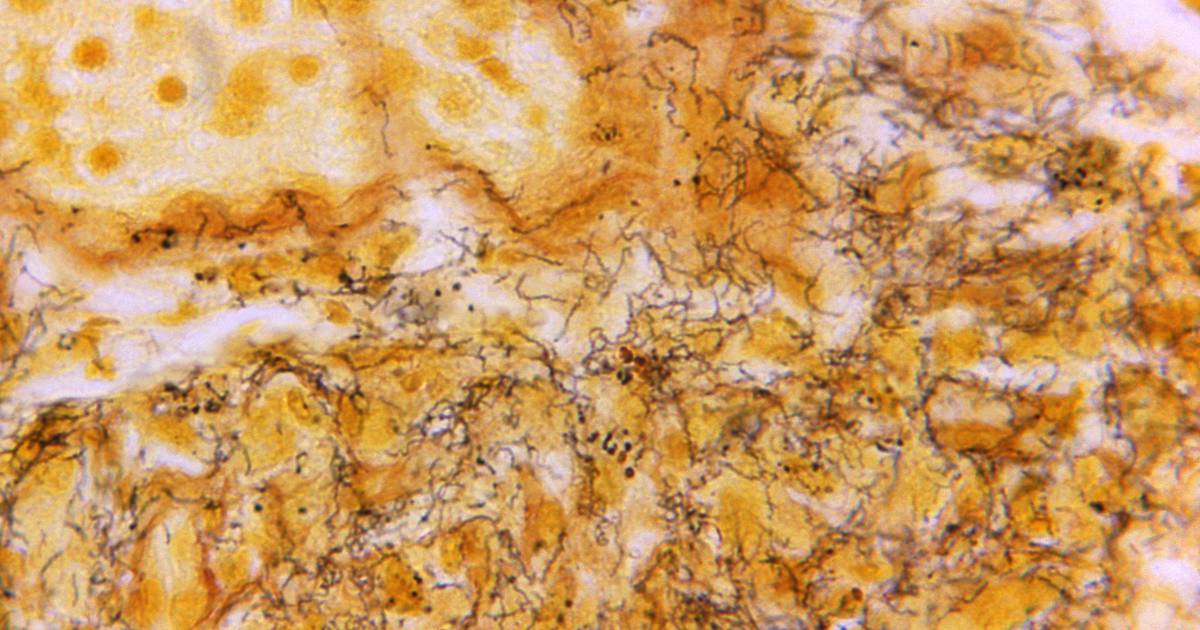:quality(70)/cloudfront-us-east-1.images.arcpublishing.com/adn/7VMOHBWPC3JWV2ARSIJ4WZND4Q.jpg?resize=640%2C0&ssl=1)
Alaska health officials are warning residents about an alarming rise in cases of syphilis — and are now calling for more adults in the state to be tested regularly.
According to data reported to the federal Centers for Disease Control and Prevention, syphilis has been increasing all over the country in recent years — and Alaska is among the states seeing the biggest surges.
“As recently as 2016, Alaska had just 20 cases of syphilis in a year. In 2022, Alaska had 424 syphilis cases, or more than a twenty-fold increase,” said a written statement from the Alaska Department of Health on Tuesday. “To address this rapid increase, the CDC now recommends that most adults under age 45 in Alaska should be tested for syphilis at least once this year.”
“Alaska currently has one of the highest rates of syphilis in the country,” said Dr. Anne Zink, Alaska’s chief medical officer. “Everyone of reproductive age who is sexually active should be tested for syphilis if they are unsure of their syphilis status. Everyone should get retested each time they have a new sexual partner, and every 3-6 months if they have multiple partners.”
An infection caused by the Treponema pallidum bacteria, early stage syphilis can be easily treated with antibiotics. Initial symptoms are usually small, painless sores or chancres that, even if unmedicated, typically disappear after a few weeks.
Untreated, however, the infection can linger in the body and eventually become serious, even fatal. Years after initial exposure, the infection can impact major organs and invade the nervous system, according to the CDC, possibly leading to blindness, changes in thinking, or dementia.
Alaska public health officials are particularly concerned about the record number of babies born with what is known as congenital syphilis, passed from an infected mother to an infant. In 2022, 12 cases of congenital syphilis were diagnosed, primarily among babies born in Southcentral Alaska.
“It is especially important for all expectant mothers to ask their doctor for syphilis screening testing as part of their prenatal care. Testing is recommended during the first prenatal visit, during the third trimester and again at the time of delivery,” said Dr. Joe McLaughlin, Alaska’s state epidemiologist and chief of epidemiology in the Division of Public Health.
In a December letter to Alaska health care providers, Zink and McLaughlin highlighted the dramatic rise in congenital syphilis and encouraged testing of pregnant women, particularly those at the highest risk, including “those experiencing hardships such as homelessness or addiction.”
“In order to reverse the dramatic increase in syphilis and congenital syphilis in Alaska, we need clinicians to be thinking about syphilis, to increase testing, and to offer prompt provision of treatment to people who test positive or have been exposed to syphilis in the past 90 days,” Zink and McLaughlin wrote.
Since a historic low in cases around 2001, syphilis has steadily climbed back across the country and among a wide range of demographic groups.
“Rates increased among both males and females, in all regions of the United States, and in all age groups. Rates of (primary and secondary) syphilis increased in all racial/Hispanic ethnicity groups, with greatest increases among non-Hispanic American Indian or Alaska Native persons,” according to the CDC’s 2021 National Overview of Sexually Transmitted Diseases.
Public health experts have linked rising rates of STDs nationally with disruptions in sexual health screening during the early lockdown phases of the COVID-19 pandemic, which led to fewer in-person medical visits, less detection and early interventions that can help curb the spread of infections. Epidemiologists have also pointed to online dating apps as enabling people seeking out sex to connect with more partners, which can contribute to further transmission.
The state health department is directing people to get tested at public health centers around the state or seek out more information on its STD awareness webpage.
